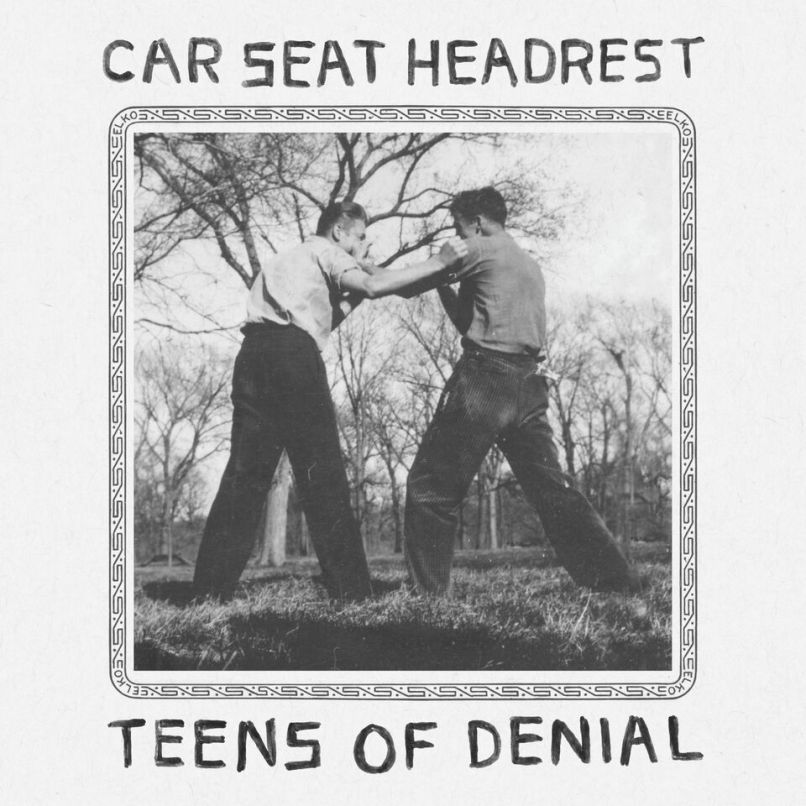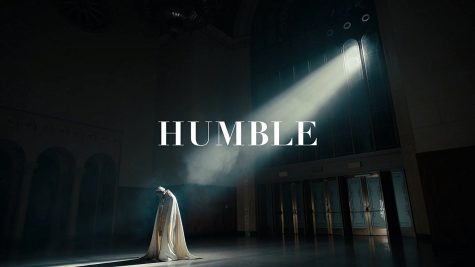WVAU’s #8 Album of 2016: "Teens of Denial" by Car Seat Headrest
December 24, 2016
Here I was, working one of my long weekend shifts at a catering company in (where else but) Ithaca NY during this past summer vacation. I was stocking back, and threw on a new album that had been recommended for me to take a listen to: Car Seat Headrest’s Teens of Denial. I wasn’t prepared for the feelings that hit me when I heard Will Toledo’s raw musical reflection. Listening to this album through from beginning to end is what I’d consider an emotional rollercoaster. Every song is beautifully crafted to build and release with a rise and fall of tempo, gut-wrenching honesty, and clever lyricism. While Toledo maintains the common alt-rock theme of depression, social anxiety, and substance abuse, I believe that he incorporates an important angle into this album that serves not to glorify these issues, but rather to reflect upon himself and share a true version of his thought processes.
He starts off the album with Fill In The Blank, an upbeat track that expresses the back-and-forth arguments that he has with himself about mental illness: “You have no right to be depressed/ You haven’t tried hard enough to like it” ÛÒ “But it hurts it hurts it hurts” ÛÒ “Well stop your whining/ Try againÛ… This internal monologue leads into the second track, Vincent, which begins with simple harmonics that layer over a net of wavering notes. This builds smoothly into a complex and stormy string of guitar which shyly hints at grunge, especially with the infusion of static undertones, a distorted theme that is carried throughout the rest of the album. In (Joe Gets Kicked out of School for Using) Drugs with Friends [But Says This Isn’t a Problem], a gentle beginning opens with Toledo describing his experiences with a particularly self-deprecating drug-trip in which he sees Jesus. In this honest reflection, Toledo recounts a relatable sense of loneliness amid friends and intoxication. Release from this tension is found in Drunk Drivers/ Killer Wales, a melodic and hopeful two-part piece about recovery, which ends expressively with the catchy hook “It doesn’t have to be like this/ Killer whalesÛ. If not sooner, I was absolutely shedding a tear by the time The Ballad of the Costa Concordia ended. This entire track is one long, epic build-and-release that ties together the album both dramatically and with purpose. Touching on the apathetic impacts of depression, Toledo completes this piece with a layered composition of piano and horns mixed with an unfiltered stream of consciousness. In the middle of this twelve-minute track, Toledo asks a series of questions that increase in urgency with the tempo, building fiercely into a furious tangle which levels off into the fast-pace, forward-moving and grandiose finale: “I GIVE UP!Û.
Car Seat Headrest’s Teens of Denial made it into the top ten album of the year lists for Bob Boilen, The Rolling Stones, and Pitchfork, as well as Pitchfork’s top live performance and top most over-rated album lists. While critics commonly name Car Seat Headrest unoriginal and alike many other DIY alternative bands, I find this album unique in its sophistication of instrumentation and progression. Curated with jolting dynamics and raw lyricism, this combination of traditional lo-fi garage rock infused with a developed set of tracks lends Teens of Denial a sound that impresses me as full-bodied and cohesive. From recording in the backseat of his car for privacy (inspiration of the name “Car Seat HeadrestÛ), to touring internationally, Toledo certainly made a great leap forward into the realm of professionalism and publicity after signing with Matador Records. Regardless of indie-rock clichÌ©s, any album that makes me feel quite so deeply as Teens of Denial did with one intimate track to the next is an album that I consider noteworthy.















